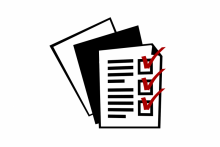
Interactive Form - Motion to Void Default Judgment
The Servicemembers Civil Relief Act (SCRA) provides important protections if you are sued while on active duty.

The Servicemembers Civil Relief Act (SCRA) provides important protections if you are sued while on active duty. These protections apply in administrative and judicial proceedings at all levels of state and federal government.
What is a Default Judgment?
This is when a court orders a judgment against a party who has failed to defend against a claim that has been brought by another party.
A Defendant to a lawsuit must respond to a complaint that has been filed by the Plaintiff (the person suing) within a certain time period set by law (this is usually 20 or 30 days. If the defendant fails to file a timely answer, the plaintiff can ask the court to enter a default judgment. If the plaintiff presents evidence supporting the claims contained in the complaint, the court can render a default judgment against the defendant.
50 U.S.C. App. §521 provides safeguards for servicemembers from having default judgment entered against them. It also and provides a remedy that can be used to void a judgment if the SCRA protections were not provided to an active duty servicemember. This section also provides protections for a servicemember whose service prevents them from receiving notice of proceedings filed against them.
A court should not allow a default judgment to be entered against a servicemember if the servicemember has not made an appearance or waive the SCRA rights. The SCRA provides specific procedures for the court to follow including:
- The court must first determine whether an absent or defaulting party is in military service.
- Before entry of a judgment for the plaintiff, the plaintiff must file an affidavit that states “whether or not the defendant is in military service and showing necessary facts in support of the affidavit.”
- Criminal penalties are provided for filing a knowingly false affidavit.
- If the affidavit shows that the party to be defaulted is in the armed forces then no default can be taken until the court has appointed an attorney to represent the member. If the court fails to appoint an attorney, then the judgment or decree is voidable. 50 U.S.C. App. § 521(b) (2).
Do I qualify for this benefit?
Most members of the uniformed services on active duty are covered by this law.
About this Resource
Carefully read over these forms and instructions. Make sure the information you have given is correct and complete. The forms and instructions in this packet are not based upon any specific state law or jurisdiction. The sample a Motion to set aside Default Judgment will likely need to be modified before you use it in your jurisdiction. This is only a sample form.
This resource creates basic model pleadings for requesting that a court set aside a default judgment entered against a service member while on active duty. This resource is based on the protections under the Service Members Civil Relief Act (SCRA).
What does this form do?
This packet also includes a sample brief that may need to be filed with your motion. The sample supporting brief will likely need to be modified before you use it in your jurisdiction. This is only a sample brief.
This is an easy-to-use interactive form. The program will create a letter and instructions. All you need to do is:
- Answer a few simple questions.
- Print out your forms (Motion and Supporting Brief).
- Proofread and sign where needed.
- Attach a copy of your orders.
- Attach a copy of the SCRA section provided in your packet
- Make copies for your own records.
- Send a copy, with attachments, to the Plaintiff or Plaintiff's attorney
IMPORTANT NOTICE: Each state will have its own laws about living wills and other advance directives. This sample living will may need to be modified or there may be a more suitable form provided to you through your state or your military installation.
This is an easy-to-use interactive form. The program will create a sample living will and instructions with language refusing life-sustaining treatments if you are terminally ill and unable to make your own medical decisions or if you are permanently unconscious.
All you need to do is:
- Answer a few simple questions.
- Print out your form.
- Proofread and sign in front of witnesses.
- Interactive Form Packet is currently unavailable.
- Sample Form is attached.
IMPORTANT NOTICE: You must have Microsoft Word or Word Viewer installed on your computer to use the interactive form packet. You can download Word Viewer for free here.
You must have Adobe Reader to view the sample form packet. You can download Adobe Reader for free here.
Resource Date: November 2015
| Attachment | Size |
|---|---|
| STATIC FORM - Motion to Void Default Judgment.pdf283.71 KB | 283.71 KB |
| STATIC FORM - Motion to Void Default Judgment-Rev1.doc97.5 KB | 97.5 KB |
